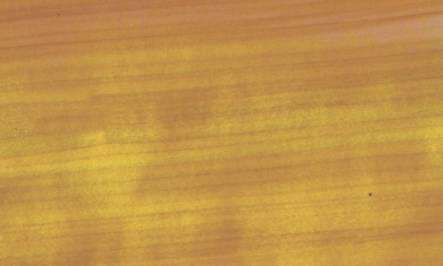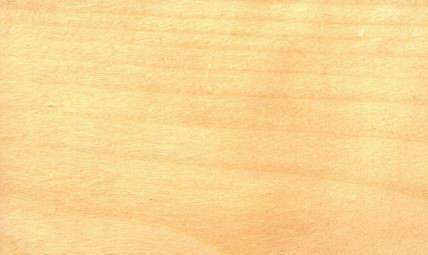 
Quaking aspen (Populus tremuloides)
Family: Salicaeae
Common names: Alamo tremblon, Aspe, Aspen, Canadian aspen, Espe, Peuplier tremble, Quaking aspen, Trembling aspen, Zitterpappel
Distributed in: Canada, Mexico, United States (Central America, North America)
Distribution overview: Quaking or Trembling aspen is considered to be the most widely distributed tree in North America. It grows from Alaska to Newfoundland and southward to Virginia. It also occurs in the Rocky Mountains, extending south to southern Arizona and northern New Mexico. It grows from near sea level to an elevation of 6500 to 10,000 feet (1981 to 3048 m) throughout its range. The tree often occurs in pure stands, and grows in many soil types, especially sandy and gravelly slopes.
Common uses: Bearings & bushings, Beehives, Boxes and crates, Brooders, Building construction, Cabin construction, Casks, Clothespins, Construction, Cooperages, Core Stock, Decorative veneer, Excelsior, Figured veneer, Flooring, Food containers, Furniture, Jewelry box, Matchboxes, Matches, Musical instruments, Packing cases, Pallets, Particleboard, Plywood, Poultry coops, Pulp/Paper products, Pulpwood, Rough construction, Sporting Goods, Turnery, Veneer
Product sources: Wood produced by Trembling and Bigtooth aspens are difficult to differentiate and are mixed and marketed together under the trade name Aspen.
Environment profile: Status has not been officially assessed
Tree size: Trunk diameter is 100-150 cm
Colors: the heart isYellow, Yellowish brownand the sapwoodWhite/Cream , Yellow.The grain isStraight, the textureUniformand the lusterSilky luster
Natural durability: Susceptible to attack from powder post (Lyctid & Bostrychid) beetles, Susceptible to insect attack
Odor: Seasoned wood has no odor or taste
Kiln Schedules: UK=E US=T6D2/T3D1 Fr=5
Kiln Drying Rate: Naturally dries quickly
Drying Defects: Moderate collapse and honeycombing, Moderate twist/warp
Ease of Drying: Thick Stock Requires Care
Tree Identification: Bole/stem form is straight
Comments: General finishing qualities are rated as good General finishing qualities are rated as satisfactory Tension wood often present
Blunting Effect: Slight
Boring: Moderately easy
Carving: Fairly Easy to Very Easy
Cutting Resistance: Moderate to saw
Gluing: Moderate gluing properties
Mortising: Satisfactory mortising properties
Moulding: Very poor (an average of 7% yield good )
Movement in Service: Very poor (an average of 7% yield good )
Nailing: Nails hold poorly, Satisfactory nailing properties
Planing: Very Good to Excellent
Resistance to Abrasion: Highly resistant to wear
Resistance to Impregnation: Sapwood is resistant
Resistance to Splitting: Good
Response to hand tools: Responds Readily
Routing recessing: Fairly Easy to Very Easy
Sanding: Good sanding finish
Veneering qualities: Veneers easily, Veneers moderately easy
Steam bending: Fairly Easy to Very Easy
Screwing: Screwing yields good results, Screwing yields satisfactory results; Turning: Very Good to Excellent Results
Painting: Satisfactory; Polishing: Very Good to Excellent; Staining: Woolly surfaces cause uneven staining ;
- Numerical data Metric
- Numerical data English
- Strength properties
- References
 |
 |
 |
 |
| Item |
Green |
Dry |
Metric |
| Specific Gravity |
0,33 |
0,35 |
|
| Density |
|
416 |
kg/m3 |
| Bending Strength |
372 |
596 |
kg/cm2 |
| Crushing Strength |
12 |
25 |
kg/cm2 |
| Hardness |
|
152 |
kg |
| Impact Strength |
55 |
53 |
cm |
| Shearing Strength |
|
61 |
kg/cm2 |
| Stiffness |
69 |
87 |
1000 kg/cm2 |
| Tangential Shrinkage |
7 |
|
% |
| Radial Shrinkage |
3 |
|
% |
| Weight |
400 |
336 |
kg/m3 |
| Maximum Load |
0,35 |
0,49 |
cm-kg/cm3 |
| Toughness |
|
|
cm-kg |
| Static Bending |
|
|
kg/cm2 |
|
 |  |  |  | | Item | Green | Dry | English | | Bending Strength | 5300 | 8483 | psi | | Crushing Strength | 176 | 363 | psi | | Density | | 26 | lbs/ft3 | | Hardness | | 337 | lbs | | Impact Strength | 22 | 21 | inches | | Maximum Crushing Strength | 2282 | 4263 | psi | | Shearing Strength | | 875 | psi | | Stiffness | 983 | 1239 | 1000 psi | | Work to Maximum Load | 5 | 7 | inch-lbs/in3 | | Specific Gravity | 0.33 | 0.35 | | | Weight | 25 | 21 | lbs/ft3 | | Radial Shrinkage | 3 | | % | | Tangential Shrinkage | 7 | | % | | Volumetric Shrinkage | 12 | | % | |
Density (dry weight) = 23-30 lbs/cu. ft. 0
Density = low
Bending strength (MOR) = low
Max. crushing strength = low
Hardness (side grain) = very soft
Modulus of Elasticity (stiffness) = very low
Shrinkage, Radial = small
Max. crushing strength = medium
Bending strength (MOR) = very low
Weight = moderate
Toughness-Hammer drop (Impact Strength) = very low
Toughness-Hammer drop (Impact Strength) = low
Shrinkage, Tangential = moderate
Shrinkage, Tangential = fairly large
Shearing strength (parallel to grain) = very low
Modulus of Elasticity (stiffness) = low
Max. crushing strength (stiffness) = very low
Low resistance to denting and marring
Hardness (side grain) = soft
Density = medium
Crushing strength = low
Bending strength (MOR) = medium
Shearing strength (parallel to grain) = medium
Boone, R.S., C.J. Kozlik, P.J. Bois and E.M. Wengert. 1988. Dry Kiln Schedules for Commercial Woods: Temperate and Tropical. United States Department of Agriculture, Forest Service, Forest Products Laboratory, General Technical Report FPL-GTR-57, Madison, Wisconsin.Brown, H.P. and Panshin, A.J.,1940,Commercial Timbers of the United States Their structure, identification,,properties and uses,McGraw-Hill, LondonBrown, W.H.,1978,Timbers of the World: - No.7 North America,TRADACanadian Forestry Service. 1981.Canadian Woods - Their Properties and Uses. Third Edition. E.J. Mullins and T.S. McKnight, Editors. Published by University of Toronto Press, Toronto, Canada.Clifford, N.,1957,Timber Identification for the Builder and Architect,Leonard Hill (Books) LTD. LondonConstantine, Jr., A.J. 1975. Know Your Woods - A Complete Guide to Trees, Woods, and Veneers. Revised by H.J. Hobbs. Charles Scribner's Sons, New York.Farmer, R.H.,1972,Handbook of Hardwoods,HMSOForest Products Research Laboratory, U.K.,1945,A Handbook of Empire Timbers,Department of Scientific and Industrial Research Forest Products ResearchHoward, A.L.,1948,A Manual of Timbers of the World.,Macmillan & Co. Ltd. London 3rd ed.I.U.F.R.O.,1973,Veneer Species of the World,Assembled at F.P.L. Madison on behalf of I.U.F.R.O. Working Party on,Slicing and Veneer CuttingKloot, N.H., Bolza, E.,1961,Properties of Timbers Imported into Australia,C.S.I.R.O. Forest Products Division Technological Paper,No.12Laidlaw, W.B.R.1960. Guide to British Hardwoods.Published by Leonard Hill [Books] Limited, 9 Eden Street, N.W.1, London.Lincoln, W.A. 1986. World Woods in Color. Linden Publishing Co. Inc. Fresno, California.Little, E.L.1980.The Audobon Society Field Guide to North American Trees - Western Region.Published by Arthur A. Knopf, New York.Markwardt, L.J., Wilson, T.R.C.,1935,Strength and related properties of woods grown in the United States,U.S.A. Department of Agriculture Technical Bulletin,No.479Mullins, E.J. and McKnight, T.S.,1981,Canadian Woods Their Properties and Uses,University of Toronto Press 3rd EditionPanshin, A.J. and C. deZeeuw. 1980. Textbook of Wood Technology, 4th Edition. McGraw-Hill Series in Forest Resources. McGraw-Hill Book Company, New York.Perala, D.A. and Carpenter, E.M.,1985,American Woods - Aspen,USDA, Forest Service American Woods FS-217Record, S.J., Hess, R.W.,1943,Timbers of the New World,Yale University PressTakahashi, A.,1978,Compilation of Data on the Mechanical Properties of Foreign Woods (Part,III) Africa,Shimane University, Japan, Research Report on Foreign Wood No. 7Thomas, A.V.,1953,The timber of Upun Batu (Upuna borneensis,Malaysian Forester 16(3, 163-5U.S.D.A. Forest Service,1974,Wood Handbook,U.S.A. Department of Agriculture, Forest Service Handbook,72USDA. 1987. Wood Handbook:Wood as an Engineering Material. Agriculture Handbook No. 72. United States Department of Agriculture, Forest Service, Madison, Wisconsin.USDA. 1988. Dry Kiln Operator's Manual - Preliminary Copy. Forest Service, Forest Products Laboratory, Madison, Wisconsin.
|









